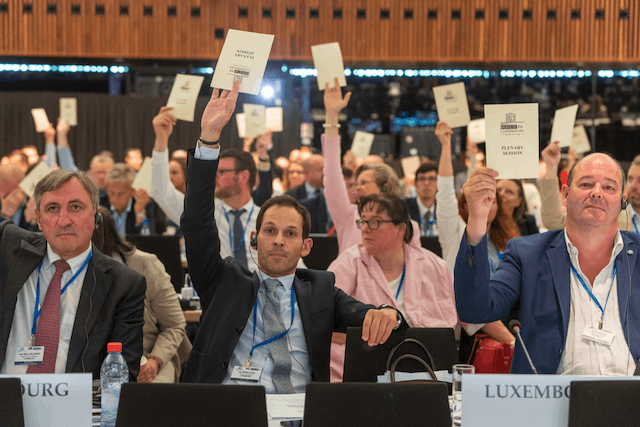The declaration, the culmination of working sessions over five days from 4-8 July during the organisation’s annual session, highlights the OSCE commitment to implement the 17 sustainable development goals as outlined in the UN 2030 Agenda for Sustainable Development. Its recommendations included carbon pricing and the implementation of policies which “place a financial price on CO2 emissions to both account for the environmental harm that this pollution is causing and leverage economic incentives to move away from fossil fuels and towards clean energy”.
The situation in Ukraine was expected from the outset to be high on the agenda during the parliamentary assembly, and the declaration further urges for the hostilities in the country’s eastern region to cease, calling the “ongoing temporary occupation and attempted annexation of [Crimea] and the city of Sevastopol by the Russian Federation, and the illegal mounting military presence of the Russian Federation in Crimea and territorial waters of Ukraine…the most serious threats to security and stability in the OSCE area”.
In addition to the adoption of the Luxembourg Delegation, the assembly also approved 15 supplementary items ranging from educating schoolchildren in a bid to prevent human trafficking, governance linked to migration and return policies, and the human rights situation in Georgia, to name a few.
In the last day’s session, the new PA was also voted in, with George Tsereteli (Georgia) re-elected president of the organisation.
Read the Luxembourg Declaration in its entirety on osce.org.
